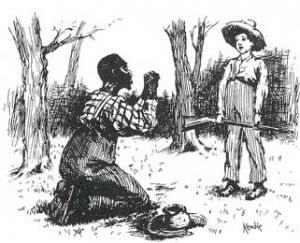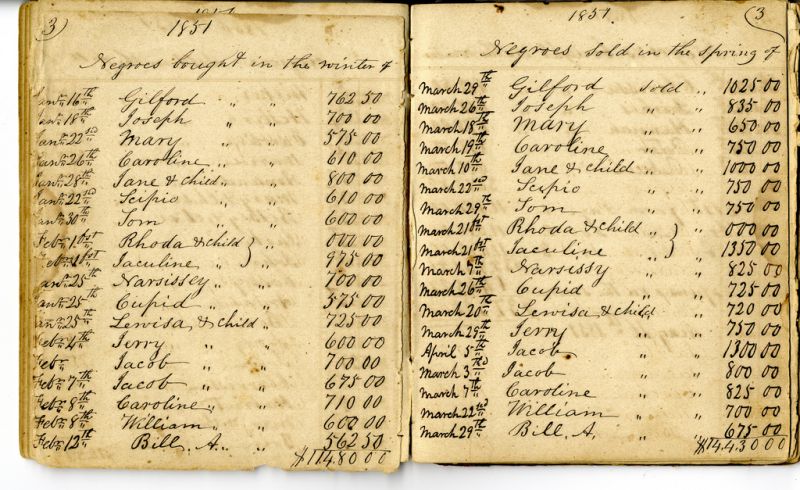Ta-Nehisi Coates ponders Django Unchained, the Quentin Tarantino slavery revenge flick in the vein of Inglorious Basterds:
When I think of Django Unchained all I see are rape scenes and scowling dudes. One of the problems, at least for me, is that I don’t actually hunger for a revenge flick about slavery. I understand why Jews might hunger for a some cathartic revenge in terms of the Holocaust. There’s a certainly clarity to industrialized genocide. But slavery is something different, something at once more variable, intimate and elusive.
J.L. Wall responds:
Revenge in the context of atrocity tends to mean “desire to kill.” This is the form it almost wholly takes after the event. But from within the event—from, in fact, accounts secretly written in and buried nearby Auschwitz—one finds the desire to do this precisely to them. And this is part of the problem that TNC is pointing toward in his final sentence: that, since slavery can’t be reduced to the shorthand of “murder,” it’s harder to ignore the question of the particular cruelties revenge would call for.
In Jeffrey Goldberg’s review of Inglorious Basterds, he writes about dreaming about killin’ NAZees as a kid, delighting in Quentin Tarantino’s “story of emotionally uncomplicated, physically threatening, non-morally-anguished Jews dealing out spaghetti-Western justice to their would-be exterminators.” His initial anecdote helps explain that Inglorious Basterds is not primarily a film about killing Adolf Hitler, although that’s the form that catharsis takes. The true “revenge” of Inglorious Basterds is in the banishment of a particular stereotype, the idea of the weak, fearful Jew who goes helplessly into the ovens. The film Defiance, about a group of Jewish partisans in a forest in Belarus during World War II, has a similar aim—in the woods, the manly, unintellectual Jews played be Liev Schriber and Daniel Craig suddenly become leadership material, while the nebbish former academics are portrayed as contemptuous weaklings. And I suppose what has always bugged me about both of those films is that somewhere deep inside they see Jews the way anti-Semites see Jews, and are actively working to convince not just the world but themselves otherwise.
Of course I enjoyed both, and there’s something about the whole “tough Jew” genre of film that I can’t help but like because, hey, I’m not immune to internalizing stereotypes either. But the reason Django Unchained probably can’t and won’t work the same way is that black Americans are dealing with a fundamentally different set of stereotypes. The perception is not, for example, that we’re incapable of being tough, or of engaging in terrible acts of violence. Instead, the stereotype is that’s all we’re capable of. So a film in which a slave kills his masters may vicariously avenge a historical injustice, but it lacks the catharsis of defying the accepted narrative that narrowly limits what being black is supposed to mean. A true ethnic revenge story says, what you believe me to be is not all I am; I am better than you think me to be.
An actual black revenge flick would have to banish the myths of black cultural pathology and intellectual inferiority, much as Inglorious Basterds seeks to counter narratives of Jewish helplessness. Django Unchained isn’t a black revenge story. The Cosby Show is a black revenge story.














